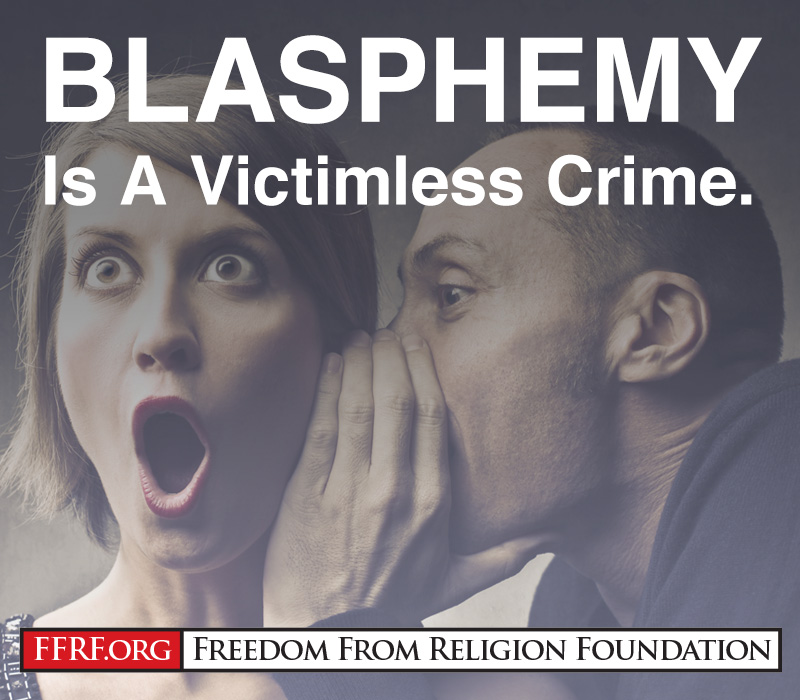
The Freedom From Religion Foundation applauds Scotland for voting to repeal its blasphemy law.
The theocratic provision dates back to 1825 and has not been enforced since 1843. The repeal was part of a broader bill updating Scotland’s hate crime laws. Scotland is following in the footsteps of the Republic of Ireland, which scrapped its own blasphemy law in 2018, after a public outcry when English comedian Stephen Fry was slapped with blasphemy charges. FFRF commends Humanist Society Scotland for its tireless efforts on this front.
The Scottish blasphemy law persisted far longer than it should have, since the Scottish Constitution includes prohibitions on religious discrimination and states, “All citizens have the right to freedom of religion or none, provided it is practised within Scots law.” This is a mirror of the situation in the United States, which has a thoroughly secular Constitution that vigorously protects free speech and conscience, but many of whose public officials promote religion and denigrate nonbelievers.
Last year, the U.S. House of Representatives historically passed a resolution calling for the global repeal of blasphemy, heresy and apostasy laws. This resolution passed with overwhelming bipartisan support (386-3), and was championed by Congressional Freethought Caucus Co-Chair Rep. Jamie Raskin.
Today, many countries still outlaw blasphemy, in some cases making it punishable by death. It is crucial to repeal even blasphemy laws that are not currently enforced, because other nations point to such provisions to justify their horrific laws or countenance targeting of nonbelievers or “apostates.” Promoting secularism and the right to speak critically of religion is a universal win for freedom of speech and religious liberty.
“Blasphemy is a victimless crime,” says FFRF Co-President Dan Barker, “but laws against blasphemy can become a life-and-death matter.”
FFRF, through Nonbelief Relief, has helped 25 individuals imperiled by their “blasphemous” atheism find a safe port, and continues to aid such individuals.
Religious freedom requires the freedom to criticize religion. Americans should take note, and celebrate that our Founders figured this one out almost two and a half centuries ago.
The Freedom From Religion Foundation is a national nonprofit organization with more than 35,000 members across the country and members in every state. FFRF’s purposes are to protect the constitutional principle of separation between church and state, and to educate the public on matters relating to nontheism.
